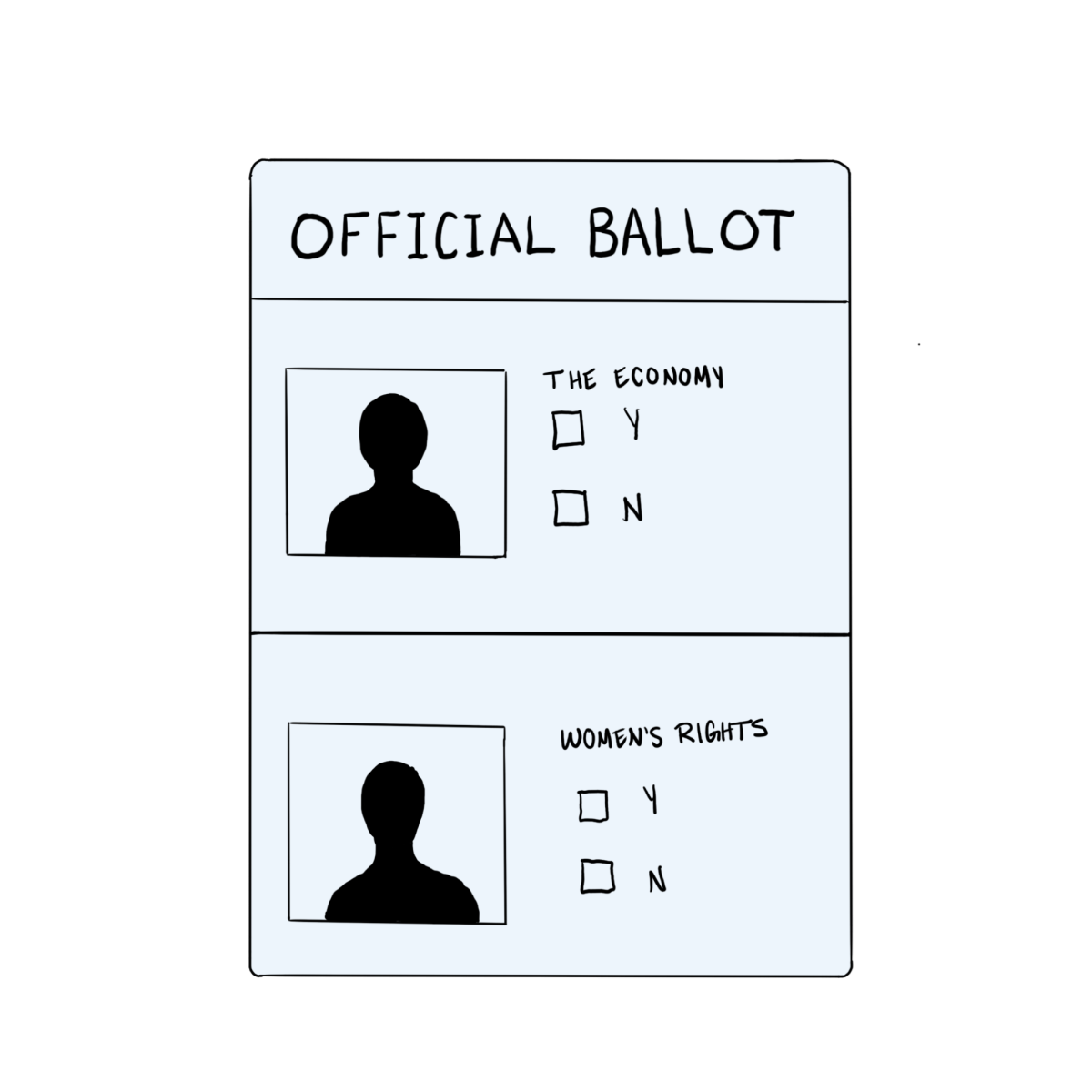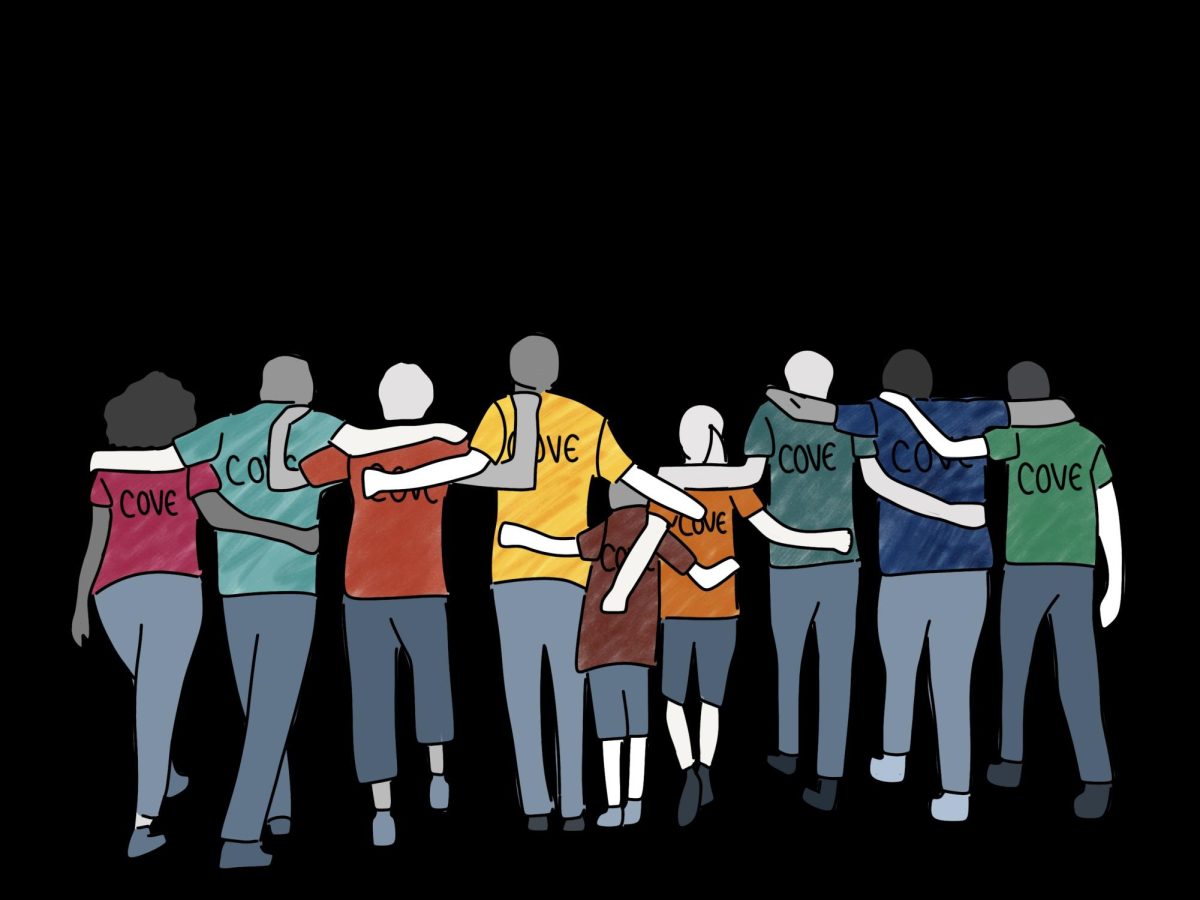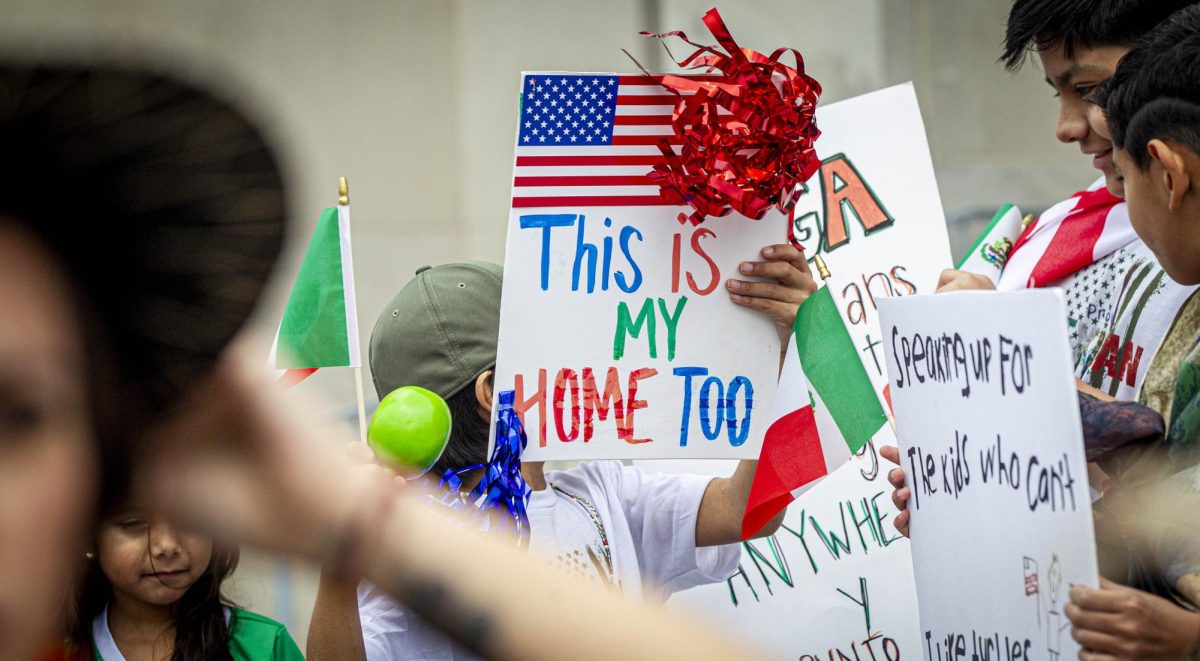1920 was the first election in which women could vote. Winning by a landslide, Warren G. Harding promised the country a return to normalcy from the precariousness of World War I.
Over 100 years later, it seems we are still grappling with what “normalcy” means for America.
2024 is an election year that is calling into question what it means to be American, specifically what it means to be an American man or woman. A country historically seeped in white patriarchy has now nominated a woman of color to be its leader. Traditional gender roles are consequently being challenged. While modern women have more economic and social capital than they did in 1920, they are still fighting for the rights to their own bodies. November will be a time of many questions, but none will be more prevalent, in my opinion, to young Americans than this: have we truly reached a point of gender equality? What, then, does it mean to be a young American man or woman if we are divorcing ourselves from the traditional gender roles modeled for us by our parents and grandparents?
Young American voters are split in their priorities in this election. While women are concerned with ensuring their rights are protected and developing opportunities for advancement, young men are anxious to maintain the old guard. Nowhere is this more apparent than in the debate over reproductive rights. In 2024, a woman can run for president, but she still has to fight for her bodily autonomy.
Reproductive rights are one of the main priorities of women in this election, pushing them to vote for Vice President Kamala Harris. For young men, their top issue is the economy. Inherent in former President Donald Trump’s promise to “Make America Great Again” is to make America great for young, white American men. He is selling to these men the narrative that America’s current economic and social woes are begot by women having more mobility. Restoring traditional gender roles is a way to return to a time when America was “great” for a small, powerful segment of the population. Trump has inspired young men to be nostalgic for a time they have never experienced, vengeful for taking back a country that was never stolen from them in the first place. It is interesting to me that while most young men have been socialized to women being in the same classes as them and occupying the same roles in the workplace, they still view the world through this sexist narrative.
In Trump’s Eden, women’s bodily autonomy is an afterthought. The stakes of this election are thus much higher for women. Young women do not have the luxury of voting solely for the candidate that promises the most economic prosperity. They must vote for the candidate that will promise them a future of freedom and complete bodily autonomy. Trump has gloated on social media about his success in overturning Roe v. Wade, writing, “After 50 years of failure, with nobody coming even close, I was able to kill Roe v. Wade, much to the ‘shock’ of everyone, and for the first time put the Pro Life movement in a strong negotiating position over the Radicals that are willing to kill babies even into their ninth month, and beyond.”
Trump gleefully writes social media posts, unscathed by his decision and embarrassingly uneducated about abortion and pregnancy. Perhaps Trump doesn’t care to know the facts and realities about how abortion works because he will remain unaffected by his decisions. His constituents, however, are forced to live with its ramifications. Trump and other men in office who are the most vocal opposers of Roe v. Wade will never have to be examined by a SANE nurse, bite their nails as they wait for a second parallel line on a pregnancy test or require a life-saving dose of methotrexate to treat an ectopic pregnancy. Trump positions himself and his young male constituent base in a position of power over women, as though they are playing God, as he denies them bodily autonomy.
A threat to patriarchy in this country is, to Trump’s young male supporters, akin to a threat to its future. In a country borne of patriarchy, a change to this traditional model requires restructuring current systems. This systemic change requires a change in mindsets. To some, breaking from this patriarchal mode seems very un-American. We are in an era in which the nuclear American family — the breadwinning dad, stay-at-home mom, two kids and a dog — appears to no longer be the norm nor the main goal of American women. Young American women see motherhood and marriage as not end goals but rather roles they may occupy tangentially to their professional and personal goals. Many girls are no longer dreaming of being wives and mothers when they grow up but rather skilled professionals. For example, 13 percent of teenage American girls dream of becoming doctors compared to only 8 percent of teenage American boys.
All of this is making young American men uncomfortable. They are looking at the women growing up alongside them and not seeing their mothers and grandmothers, but rather a changing archetype of American womanhood. They are not surrounded by Nancy Reagan-esque women greeting them with freshly baked cookies and modest requests to stay away from drugs and danger, but rather confident, unafraid women who occupy positions of power. The push of young men to regard Trump’s fear-mongering language as gospel seems to me a knee-jerk reaction to avoid uncomfortable feelings of fear towards a changing world in which they are unsure of where they fit in.
2024 will be a year of societal change concerning American gender roles, regardless of who is elected in November. Our country will face uncomfortable questions as we evolve in our understanding of our national identity and how we write ourselves into its story. Rather than being separated as men and women, as Harris and Trump supporters, as Democrats and Republicans, it will be more fruitful to come together as American citizens and create change that will promote meaningful progress. Gender roles and identity politics should not be so divisive that they overshadow a desire to support the common good.
Correction Appended Oct. 25, 2024: A previous version of this article incorrectly noted that women gained the right to vote after World War II — instead of World War I — and has since been corrected.














